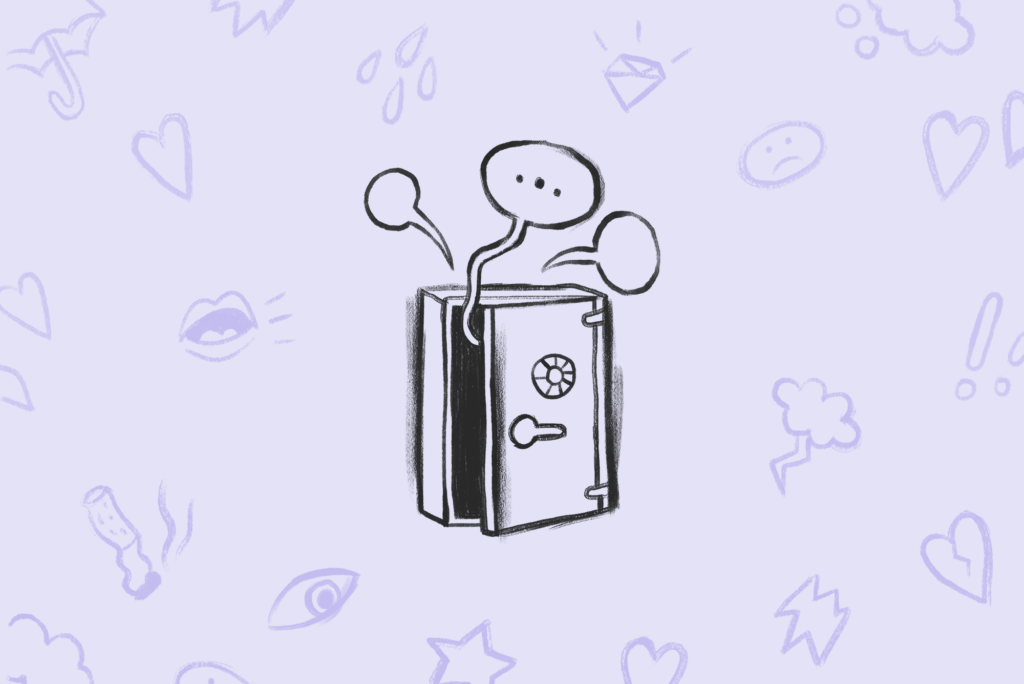Anger. Denial. Acceptance. Love. You don’t know what to expect when you are telling someone for the first time. I’ve had all of these reactions and more.
I’ve told a lot of people I was abused. Some out of necessity like paramedics and doctors. Police. Bosses. I’ve also opened up to friends and family, wanting to be understood.
If you’re a fellow survivor, this post might prepare you for the reactions you may face. Or, if you know a survivor, maybe consider which of these responses you want to be.
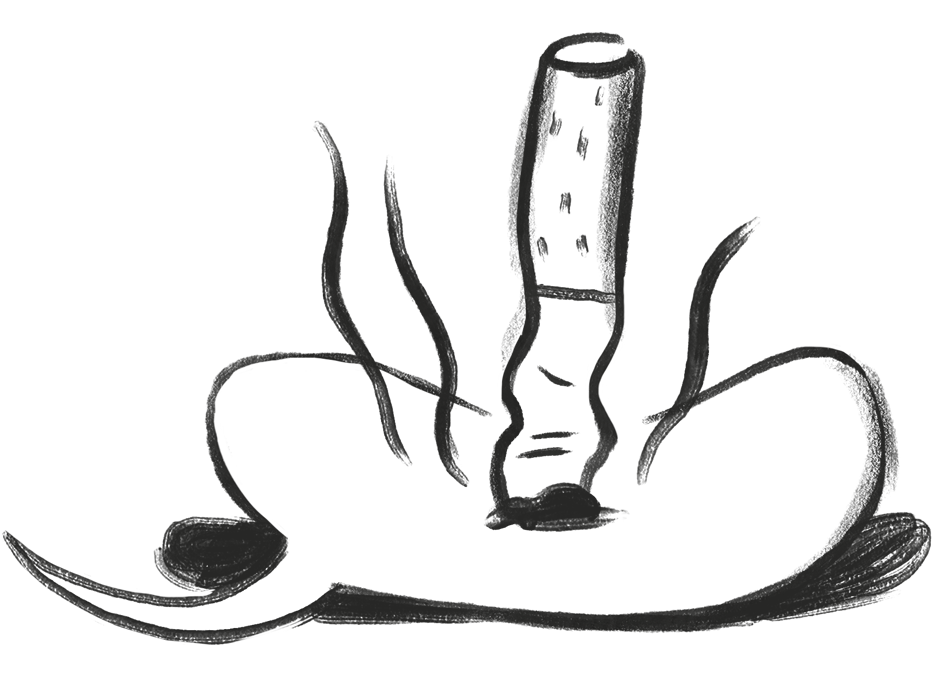
The disdainful one
“You just need to get over it.” Sexual trauma makes the layperson uncomfortable —even fearful— and they respond to this by making it your problem. If you’d told them you’d been mugged it’s almost certain you would have received a better response.
Sometimes they even rationalise it as being your fault. My childhood priest told me my rape was my sin and made me go through the sacrament of reconciliation.
When you have rock-bottom self-belief, you can end up agreeing with what they’re saying. It makes you want to avoid opening up to anybody else.
If this person is particularly close to you it may be worth taking the time to educate them. If not, walk away. Find someone capable of basic empathy.
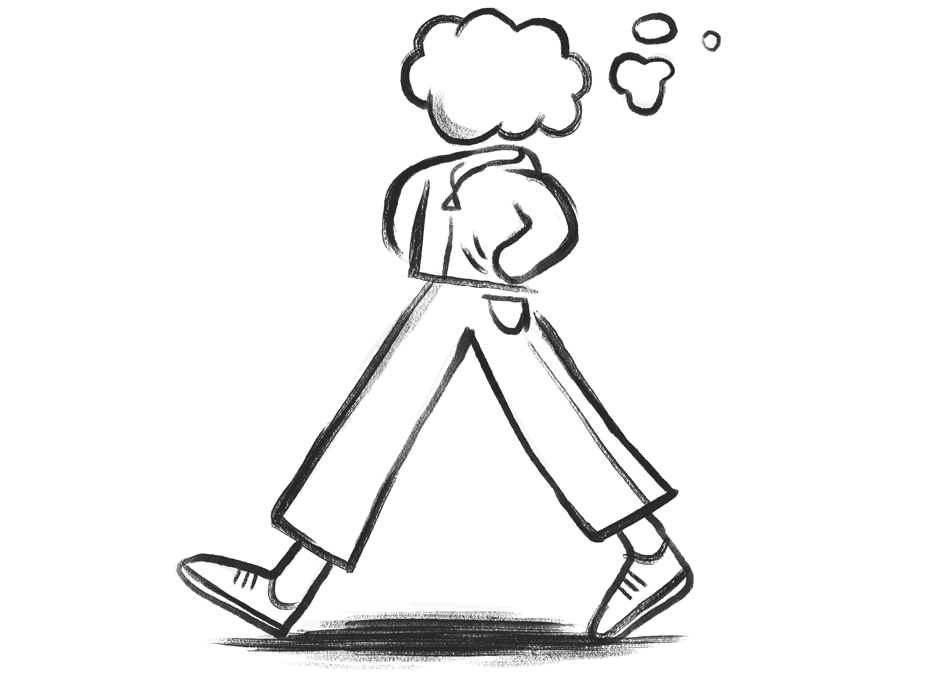
The avoidant one
Some people are just gonna be super awkward. They’ll listen to you and hear you but they don’t want to know too much. They’d rather limit the detail and exposure to your trauma, and are unlikely to ever raise the topic themselves.
People might be avoidant because it’s a huge topic. It concerns your vagina. It’s sad. It’s unfixable. So they have no idea what to say. And there’s hardly a well established social roadmap for navigating sad vagina issues.
This is the reaction I’ve had most often. It encompasses most of my friends and family. At times I can feel heart-breakingly distant from the people I most like to spend time with. One of the reasons I started this blog was to try and communicate with these people in my life indirectly. I talk about this in more detail in Why do survivors have to hide what happened to them?
If you know a survivor but you don’t know how to talk to them, try these three questions:
- How have you been?
- No really, how have you been?
- You can talk to me about it if you want?
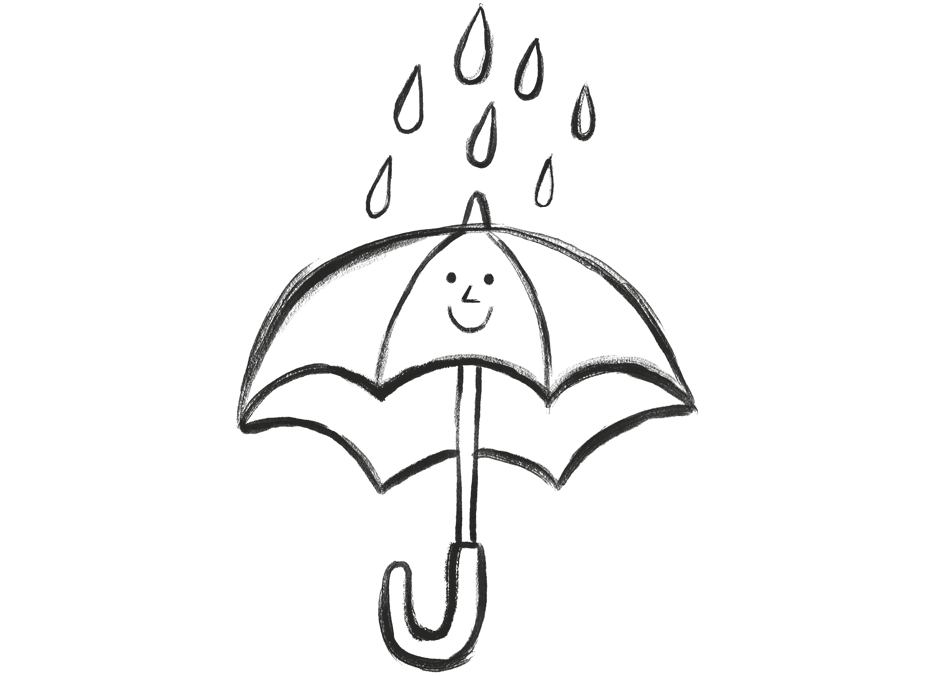
The warm hug one
They’ll listen to your story. Pass you tissues if you need them. Ask if you want a hug. They won’t push you to talk about anything you’re not comfortable with. But, will offer that you can call or text them anytime you need to talk.
Four years ago, I was confined to hospital after taking an overdose. My friend came out to visit, bringing a homemade cake. Victoria sandwich with strawberry jam and cute wafer daisies on top. We sat and talked for hours about my trauma. It meant the world.
It took a while to find them, but I’m lucky enough to have 3 close friends like this. These people are precious like gemstones. And, like gemstones, they are solid and everlasting. Cherish them.
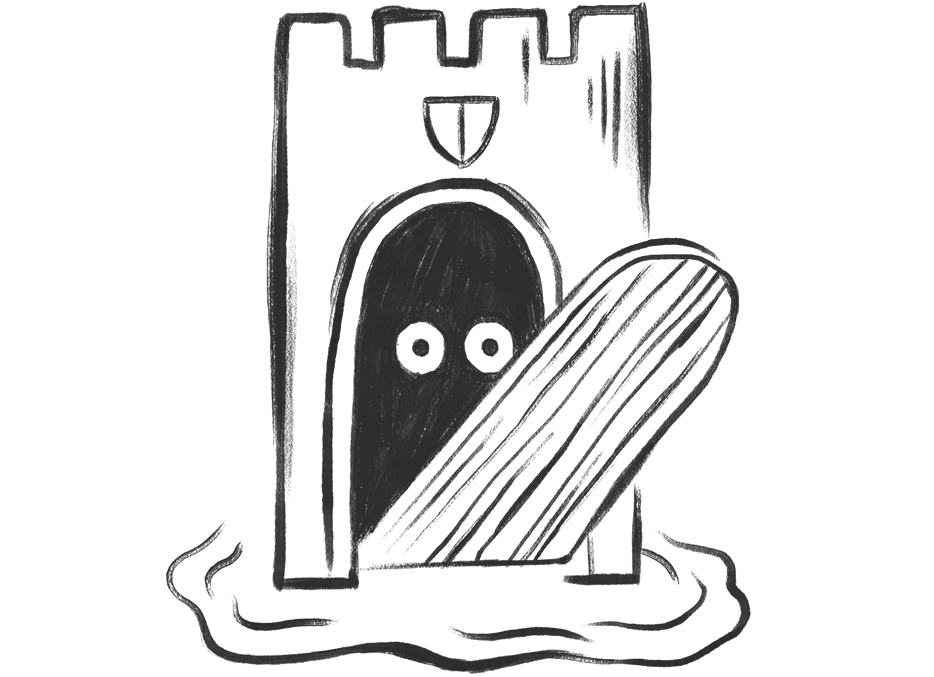
The self-preservative one
You might get some defensive reactions. If your abuse is historic, these can be from people who were in your life at the time. It may be that they didn’t see the signs for what they were.
Most people like to see themselves as a hero-in-waiting. The type of person that would stand up for the vulnerable. It can be an ego shock when they realise they didn’t.
Suddenly they feel like some blame lies with them. This can trigger full-defensive mode. When my case was under investigation, my childhood best friend was approached as a witness. That evening she sent me an outraged message, blaming me for disrupting her family’s afternoon.
These people need to be calmly told that they are not being blamed, this is not about them. It may, unfortunately, fall on deaf ears.
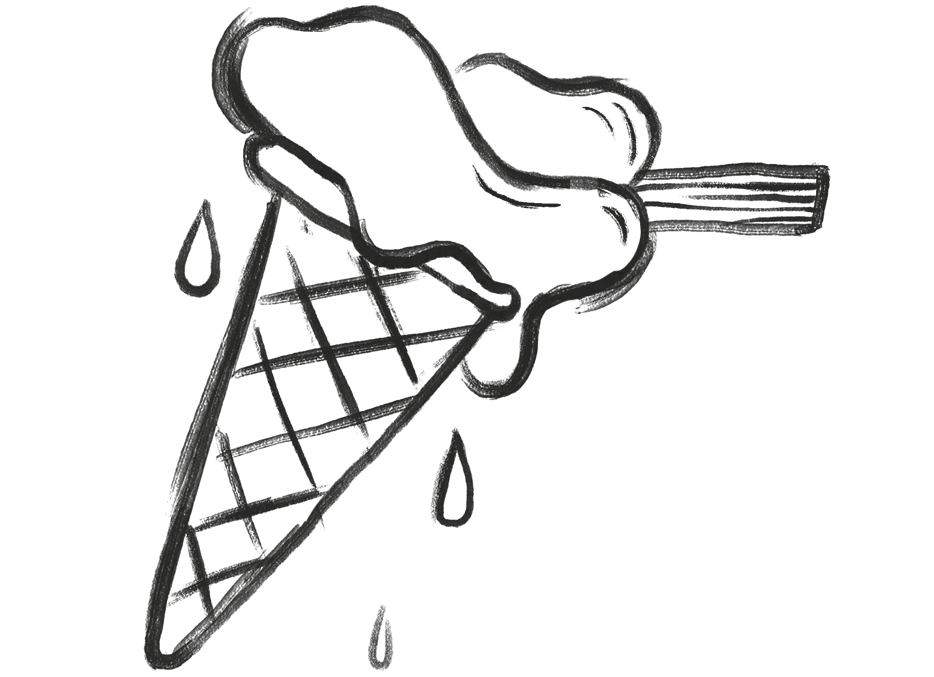
The schmaltzy one
If the person you are telling starts to show emotion this can feel uncomfortable. Especially if you are emotionally detached from your own trauma, a typical PTSD response. Their reaction can make you feel frustrated. How can this person be free to show such emotion over something that didn’t happen to them? Especially when as a survivor we often have to keep our emotions hidden.
Know that, however uncomfortable, this is a positive reaction. This person cares about you. Just give them time to process what you’ve said and come back to them.
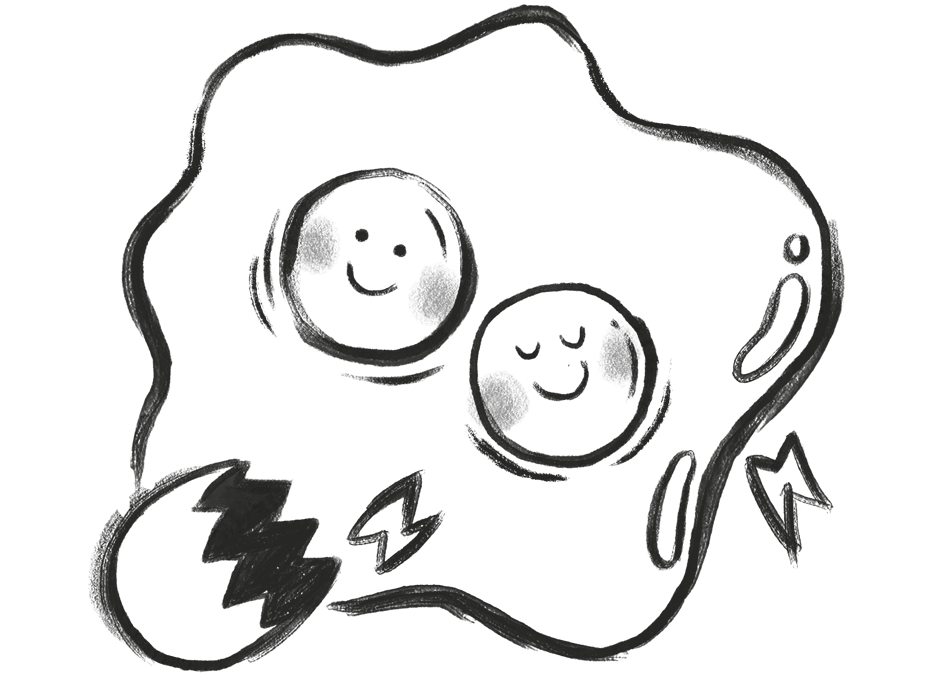
The ‘me too’ one
Every once in a while the person I am confiding in will turn to me, take my hands and say, “me too”. This response is both wonderful and heart breaking. It is so upsetting to learn of another survivor’s experience. But there’s an instant, indescribable emotional connection. They will offer words of comfort and you’ll realise you have a lot in common.
The first survivor connection I ever made was during a stay in hospital. I was recovering from tearing along my old abuse scars. I was crying and she reached out to comfort me. I told her everything and she replied with a remarkably similar story of her own. We held hands and promised to stay in touch. She came to my wedding 2 years later.
Finding another survivor made me feel more angry at the world but it also made me feel truly understood and much less alone.
I’ve since met more survivors. They are strong, incredible women. But they’ll admit to sometimes not being able to face getting out of bed. And maybe, if you’re a survivor, you’ll identify with that. And then you’ll feel less alone too.
Opening up to someone can take an extraordinary amount of emotional effort. Sometimes the responses are positive, sometimes not, and sometimes you’ll get a combination.
Please don’t give up talking to people if you get a bad reaction. There’s a positive one just around the corner. The few good reactions make it all worth it!
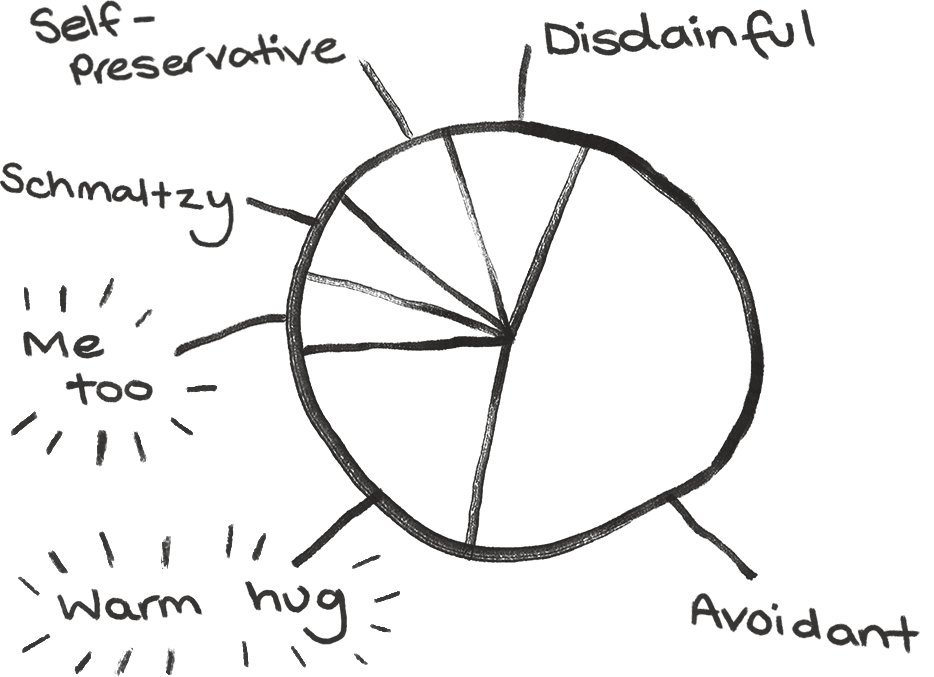
Leave a comment if you’ve experienced any of these reactions. Are there any I’ve missed?
